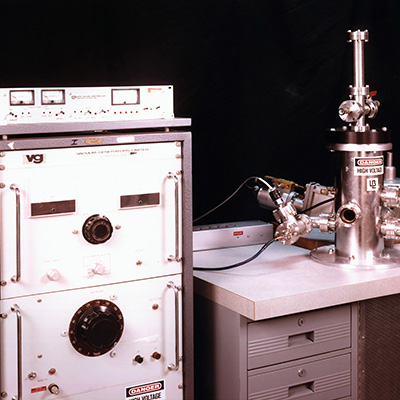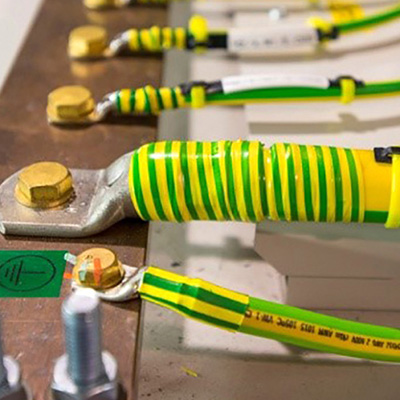Published On: Dec 11, 2015
India, the second most populous country in the world is poised to become the most populous country by the next decade or so. Due to this increasing population trend and resultant commercial / industrial activity, the demand for electricity is and will continue to rise. While the demand continues to rise at a speed greater than the availability of supply, resulting in demand supply gap not getting bridged. There is a need for localized power sources which also act as backup sources during emergency power cut-offs. Such back-up devices like Uninterruptible Power Supply (UPS) and Inverters are frequently used in most premises– both residential and commercial. Depending on the premise requirement like size, power, etc. the backup devices may come in different capacities. While these backup devices address the contingency at hand however electricity provided by them comes at a much higher cost than the grid supply.
This blog assesses UPS and Inverters in terms of PQ issues they address orthemselves create. The blog also identifies mitigation steps required for reducing impact on power quality by use of such equipment.
UPS AND INVERTER – BACKUP SOLUTIONS SERVING AS LAST LINE DEFENSE AGAINST POOR PQ
A UPS/Inverter regulates the incoming power to acceptable parameters and suppliesrequired amount of power over specified time when there isno mains supply.These back up devices are of great help at most places; be it a residential premise, a sophisticated industrial production lineor a hospitalwhere life critical equipment are deployed.In addition to providing back-up power supply, these devices also save critical equipment from poor PQ in the following ways:
- Protects from the uncertain loss of data and interruptions in supply: The first and foremost advantage of UPSisas an alternate power source providing reliable supply during power spikes, brownouts and blackouts. In case of unplanned power cuts,it helps resume work instantly (like in case of computers it allows to continue work safely and close any open documents for later use).
- Protects the voltage sensitive devices from poorsupply of electricity: When it comes to the direct AC supply (many a times)voltage fluctuations are observed in the power supply system, which can ultimately lead to the failure or degradation of the equipment. The need of sensitive machines and production lines for continuous power supply requires right voltage and frequency, hence there is a need of localized power sources. UPS and Inverters controls the voltage fluctuations and provides stable output.
- Provides surge protection: Power outage, spikes orsurges are immediately detected by the UPS. In such cases, thedevicestops the direct power supply and provides the stable power from its own stock. Hence, it saves the damage caused to the end user device due to the sudden interruptions in the power supply.
- Gives a huge power back up in the industries: Various firms connect the bulk of their machines and other equipment with the UPS and Inverters.UPS normally a high power device used in industry or commercial set ups, whereas Inverters are generally low powered device used in residential etc. The main benefits observedis that the desired work output is achieved even at high load fluctuations. Beside this, the delicate parts of the machine also get saved from any losses or breakdown.
Back-up systems are mainly provided to protect the loads from power interruptions, though some of the more advanced systems do address quality issues as well, including voltage and frequency improvements, control of harmonics, blocking the surges and noise emanating from the supply systems from reaching the critical loads. These backup devices are used generally as a last line of defense for poor PQ and help in maintaining adequate supply to end devices when needed.
UPS/INVERTERSTHEMSELVES CAUSE PQ ISSUES
The common misconception that a UPS/Inverters fixes all power quality problems can lead to antroublesomecondition. UPS/Inverters, while serving as reliable backup power sources, are also responsible for rising PQ issues. Installing a UPS will not remedy infrastructure problems such as neutrals overheating due to load-generated harmonics. Even inverters or UPS themselves can be source of harmonics generation if not designed well. In fact, the UPS may even cause power problems upstream from where it connects into the distribution system. Some of the critical issues that arises from the use of UPS/Inverters are stated as below:
- Low susceptibility: Due to the low susceptibility of inverters and UPS, they may tend to perform poorly and this may lead to breakdown of the other equipment, leading to high costs for repairs or replacement.
- Low Quality: Some of the UPS/Inverters do not possess quality battery chargers or storage devices and if they do, then the chargers are not designed for long term backups. This again leads to the PQ issues and its associated cost factors.
- Prone to distortion: Distortions in these devices due to improper voltage or frequency can also result in their catastrophic failure leading to the rise in power quality issues.
Keeping in mind the power quality challenges, creating a reliable inverter and a UPS system poses a special challenge to the manufacturers. Due to the frequency of power disturbances, the power electronic circuitry in the inverters and UPS must work under great stress. This especially holds true for inverters and line interactive UPS, that must make the transfer to the battery backup whenever there is disturbance. If UPS and inverters are not designed specifically to meet the power conditions, then they may meet higher failure rates.Thus, its important for any UPS and inverter to maintain power supply and perform well even in critical situations assuring its reliability and endurance.Some of the basic measures one needs to guard against while choosing or designing UPS or Inverters to get best value for money are:
- Sizingthe UPS/Inverter to load requirement and emergency generator.
- Size the battery to the UPS/Inverter, not to a target that will cause you to perform reduced maintenance.
- Using the backup devices to provide clean and reliable power to specific loads — not to make up for facility-infrastructure problems.
- The backup devices are part of an overall approach to resolving power quality issues, not a cure-all — so planning accordingly.
- Use of an experienced consultant to prevent or correct common design and installation errors.
- Keep UPS/Inverter outlets inaccessible to unauthorized use.
- A baseline study will give a snapshot of system’s condition. This can ease troubleshooting problems.
UPS/INVERTERSTHEMSELVES CAUSE PQ ISSUES
- Reduction in losses at motors, distribution system and transformers giving direct energy savings
- Avoided any nuisance tripping of circuit breaker
- Reduction in RMS value of current, failure rate of sensitive electronics, lesser production downtime & lesser production Waste
CONCLUSION
Businesses today invest large sums of money in their power driven systems and infrastructure, as well as the power required to keep it functioning. They count on this investment to keep them productive and competitive. Leaving thisinfrastructure defenseless against electrical dips, spikes and interruptions, therefore, is not a goodidea. A well-built power protection solution, featuring high-quality, highly efficient UPS hardware, can help keep business applications available, power costs manageable and data safe. By familiarizing themselves with the basics of what a UPS does and how to choose the right one for their needs, data center operators can ensure that mission-critical systems always have the clean and reliable electricity needed to drive long-term success.
REFERENCES
- Advantages of using UPS systems– A report by PulkitJuneja, 2012
- Why UPS and inverters fail – VenkatRajaraman, October 16, 2009
- Power Quality – Energy Efficiency Guide– CEA Technologies
- The benefitsof using an Uninterruptible Power Supply (UPS)– Computers and Service, June 2012
- The interaction of power quality and your UPS– Joseph Stamper,Electrical Construction and Maintenance, DC Group
- What happens if an Uninterruptible Power Supply (UPS) fails?







